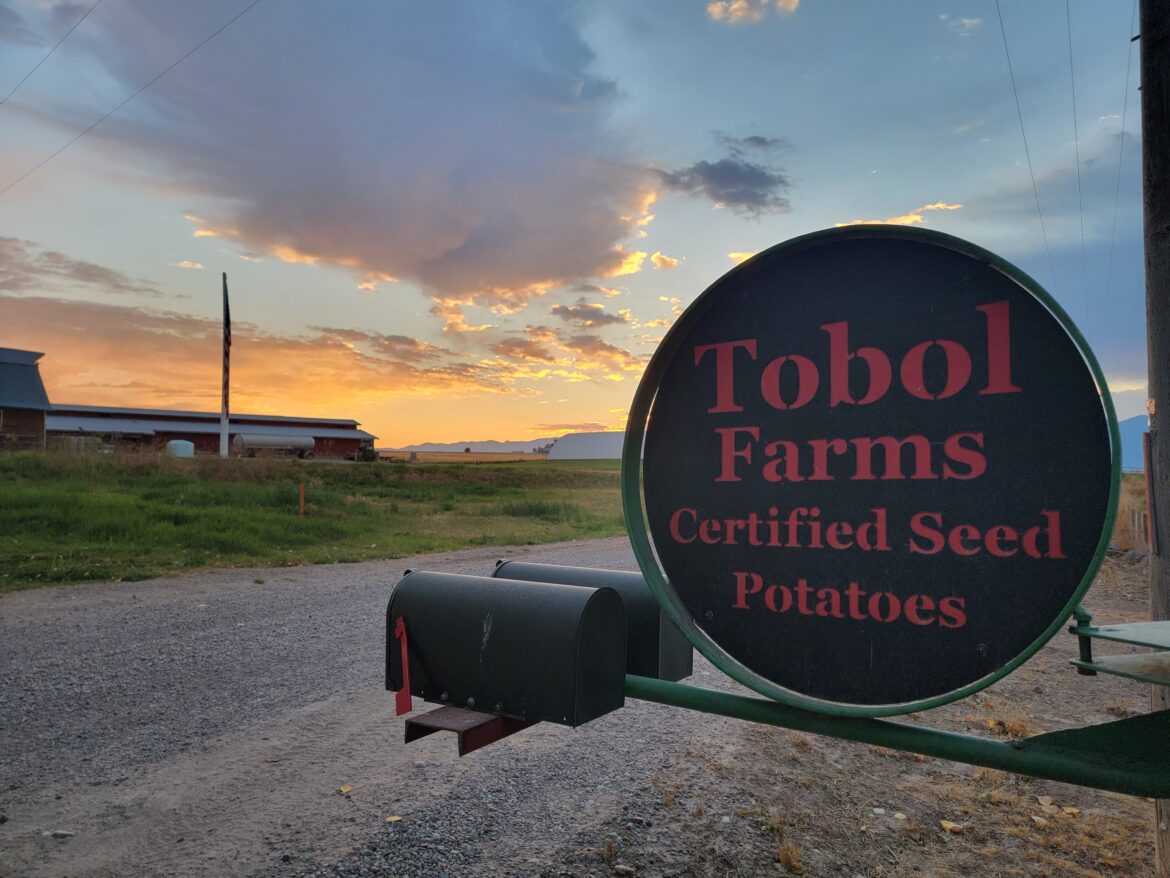Montana’s potato farmers, like Reed and Thane Tobol of Tobol Farms near Ronan, are putting the finishing touches on a successful harvest season, wrapping up operations two to three weeks ahead of schedule. Reed Tobol attributes their early completion to favorable weather conditions. However, he also mentioned that the harvest wasn’t entirely without challenges.
“The heat actually got to us a few days,” Reed noted, explaining that high temperatures forced them to shut down early on certain days to prevent the pulp temperature of the potatoes from becoming too hot. “If you put them away when they’re too hot, they just don’t store; they start breaking down, and then you’ve got all kinds of problems.” Overall, he remains optimistic about the crop, describing it as a good-quality yield, though not exceptionally large.
While the Tobols are pleased with this year’s crop, Reed did note some of the headwinds resulting from broader market conditions. With economic uncertainty and a general slowdown in consumer spending, the potato market is feeling the effects. French fry maker Lamb Weston recently announced the decision to close a processing facility and reduce its workforce by 4%, as evidence of the market’s softening.
“I don’t think it’s probably the best marketing conditions, but I don’t think it’s the worst either,” Reed said. “You’re seeing the consumer is just plumb out of money. They’re not eating out as much, they’re not buying those extra chips, and in our industry, we rely on those markets. We need people eating French fries, we need people eating chips.”
Beyond market concerns, labor shortages continue to plague the agricultural sector. “I started with five people at my cellar and ended with one,” Reed explained. “You can’t depend on people anymore, and that’s a massive struggle.”
Technology has played a role in boosting yields for growers, but it’s a double-edged sword. Reed acknowledged that while modern innovations have improved production, the lack of market outlets for these higher yields—especially when export markets are disrupted by global issues—creates significant challenges for producers like him.
“We’re kind of our own problem in a way,” Reed said, pointing out that high production levels can saturate the market. When combined with limited export opportunities due to international conflicts and other barriers, this puts pressure on family-owned farms that are already facing shrinking acreage due to urban expansion.
Montana’s potato acreage has dropped significantly over the years. Last year, just under 11,000 acres were planted, a steep decline from the 38,000 acres planted in 2018. Urban sprawl has taken its toll on agricultural land, and farmers like the Tobol’s have lost long-term lease ground to development.
“We lose farm ground probably every couple of years that we farmed for 20-plus years,” Reed explained, sharing how landowners often sell to developers, taking valuable farmland out of production.
Despite the various challenges, Reed expressed optimism for the future and wished his fellow potato producers in Montana a successful harvest. As the agricultural landscape continues to evolve, Montana’s farmers remain resilient, adapting to market conditions, labor shortages, and the ever-changing face of agriculture.
####
Northern Ag Network – 2024


